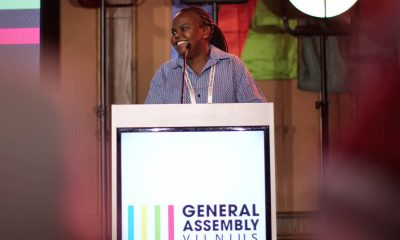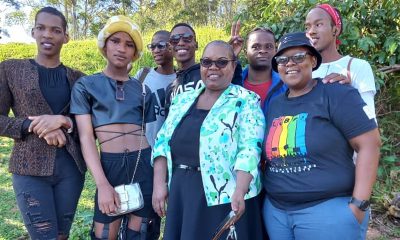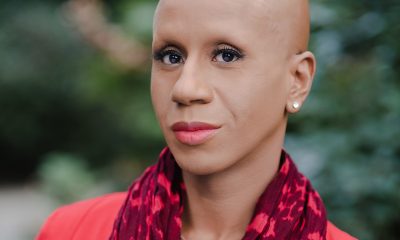Africa
Eswatini High Court acknowledges LGBTQ rights
April 29 ruling upheld decision not to allow group to register
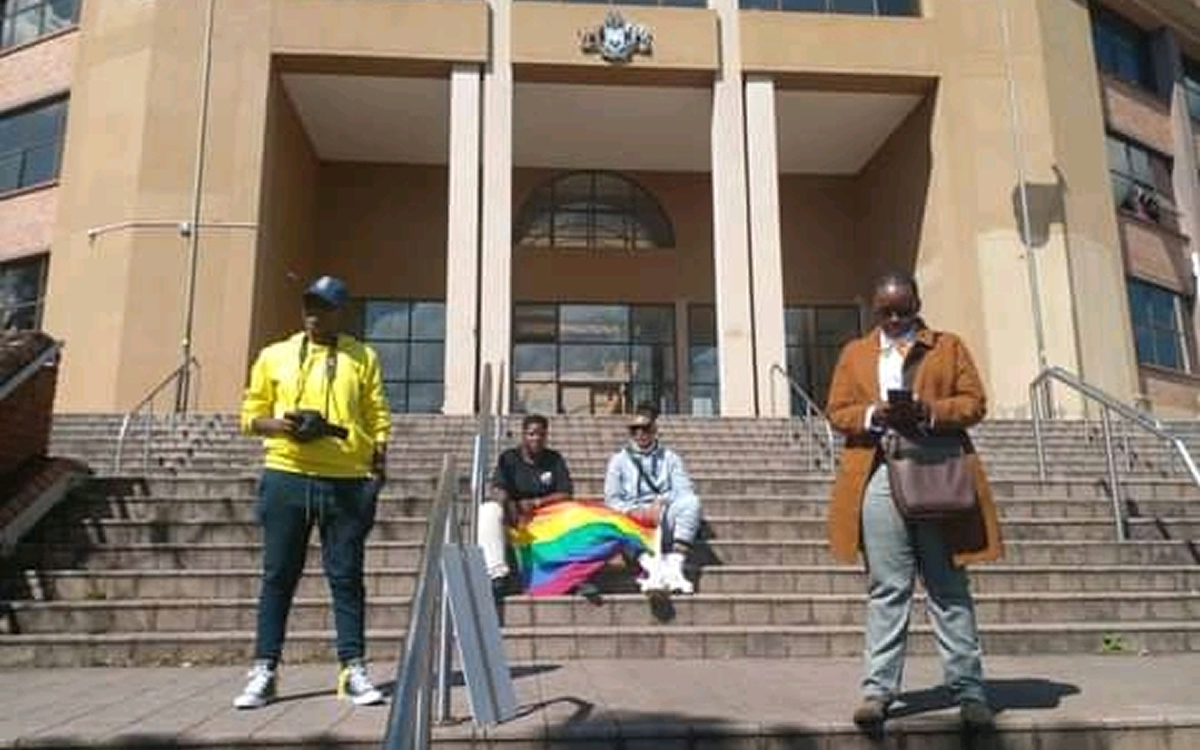
The Eswatini High Court on April 29 heard the case involving an LGBTQ rights group’s fight to register in the country.
Eswatini Sexual and Gender Minorities approached the High Court with the support of the Southern Africa Litigation Center to overturn a Registrar of Companies’ ruling that did not allow it to register.
The Registrar of Companies argued that allowing the Eswatini Sexual and Gender Minorities to register would violate the law because same-sex relations are considered illegal in the country. The High Court upheld the decision to deny Eswatini Sexual and Gender Minorities’ registration request, but said no person should be discriminated against because of their gender or sexual orientation.
“Having alluded to the fundamental rights, it is clear that our constitution guarantees the rights irrespective of gender or sex. So that it is safe to say that LGBTs have the rights conferred by Section 14 of the constitution. They have a right to life, liberty, privacy or dignity. They have a right not to be discriminated against or be subjected to inhumane and degrading treatment. They have a right to associate. They have a right to form a company. They have a right to freedom of expression,” reads the High Court ruling. “These rights are inherent in them not by reason of their sexual preferences as LGBTs but as human beings. These rights are, however, subject to the laws as prevailing in the kingdom and which have not been challenged anywhere.”
Southern Africa Litigation Center Executive Director Anneke Meerkotter said the verdict was lax and influenced by populist ideologies.
“The High Court’s judgment is a testimony on the anxiousness of Eswatini courts when dealing with matters relating to freedom of association and expression in the current political context,” said Meerkotter. “The rights to freedom of association and expression are fundamentally important in a democratic society.”
“These rights grant citizens the freedom to voice their views about all aspects of society and provides individuals with opportunities to engage in dialogue with the government, and to obtain information necessary for their protection and development as individuals,” added Meerkotter. “Across the region, courts have emphasized that any limitation of these rights must be rational and proportional. In contrast, the majority opinion exercised mental gymnastics to find against the applicants, despite acknowledging that their rights have been violated. The judgment highlights once again how hard it is for citizens to assert their rights to association and expression in Eswatini’s courts.”
Same-sex relations are prohibited under the common law, which criminalizes sodomy. The penalty for violating the law under which only men are criminalized is unknown.
The law dates back to the British colonial period. Eswatini retained this provision upon independence and continues to criminalize same-sex sex relations today.
According to Section 252(1) of Eswatini’s Constitution, the principles and rules of Roman-Dutch common law that have applied to Eswatini since Feb. 22, 1907, (as those principles and rules existed on Independence Day, Sept. 6, 1968) are applied and enforced as the common law of the country.
LGBTQ people in Eswatini regularly face societal discrimination and harassment. As such, most choose to remain in the closet or move to neighboring South Africa.
It remains to be seen whether or not new legislation will be enacted to specifically recognize LGBTQ people and protect them from stigma and victimization after the High Court verdict.
Daniel Itai is the Washington Blade’s Africa Correspondent.
Africa
Senegalese NGO claims new president discussed LGBTQ rights with top EU official
Jamra Ong Islamique demands government expedite anti-LGBTQ law
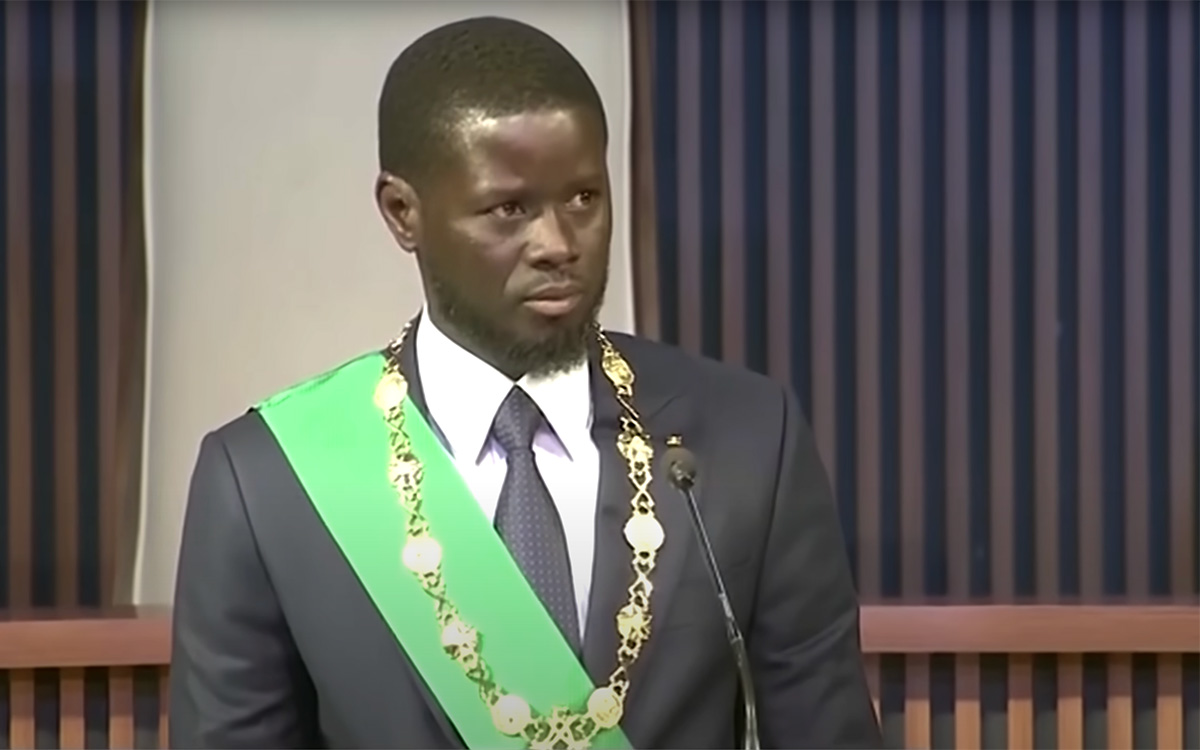
A Senegalese NGO has called on the government to expedite the process of enacting an anti-LGBTQ law after the country’s new president met with a top EU official.
Jamra Ong Islamique made the call during a press conference last Wednesday after newly elected Senegalese President Bassirou Diomaye Faye met with European Council President Charles Michel.
Mamae Makhtar Gueye of Jamra Ong Islamique claimed the meeting between the two dignitaries involved an acknowledgment of LGBTQ rights in Senegal. Gueye said Michel is an LGBTQ ally who wants to change Senegal’s cultural customs that do not condone LGBTQ rights.
“His ardent proselytism for the expansion of LGBT ideology could not leave Jamra indifferent,” said Gueye. “Countries including Gabon, Central African Republic, and Mauritius, amongst others, that underestimated the nuisance of these propagandists of homosexuality paid dearly for it because these global lobbyists ended up legalizing this abomination, so beware.”
Gueye, however, has received a lot of backlash and has been accused of not raising the same sentiments during the tenure of former President Macky Sall, who also met with Michel.
“Did he come as a defender of the LGBT cause or as a European official? Did he come to talk about LGBT rights or partnership agreement between the European Union and Senegal?,” asked Ahmadou Diaw, a Senegalese academic. “Mr. Gueye should know when to alert and when to shut up.”
Cheikh Maï Niang, a social commentator, described Jamra as a “useless organization” that is focused on restricting the freedom of the Senegalese people.
“They are absolutely good for nothing apart from eating the taxpayer’s money,” said Niang. “Where is the democracy we cry about everyday? Seems like they are here to restrict the freedom of the Senegalese people.”
“Not everyone is interested in religion,” added Niang. “We wasted too much time with these useless things. Let’s talk about developing the country. People should live their lives in the manner they want.”
Jamra has previously made proclamations against the LGBTQ community.
The organization in February — before Senegal’s presidential election that took place on March 24 — accused the EU Electoral Observation Mission to Senegal of wanting to indoctrinate Senegalese people with their pro-LGBTQ narrative.
Senegal does not have a law that specifically criminalizes those who identify as LGBTQ or advocate for them. Article 319 of the country’s penal code criminalizes consensual same-sex sexual relations with a fine and between one and five years in prison.
Some Senegalese lawmakers have sought to increase the prison sentence to 10 years for anyone convicted of engaging in homosexuality. These efforts thus far have not been successful.
Samm Jikko Yi (Together for the Safeguarding of Values), an Islamic lobby group that includes many organizations, in 2022 organized an anti-LGBTQ demonstration in Dakar, the country’s capital. Protesters called for harsher penalties for Senegalese who identify as LGBTQ and/or advocate for LGBTQ rights.
The Washington Blade in 2022 noted LGBTQ people have suffered physical and sexual abuse while in prison.
Senegal’s deep religious roots, which are largely Islamic, have contributed to the lack of tolerance of LGBTQ people in the country. This reality has prompted LGBTQ Senegalese to either flee the country or remain in the closet.
Media reports indicate there are fewer bars, clubs and other places where LGBTQ people can freely socialize.
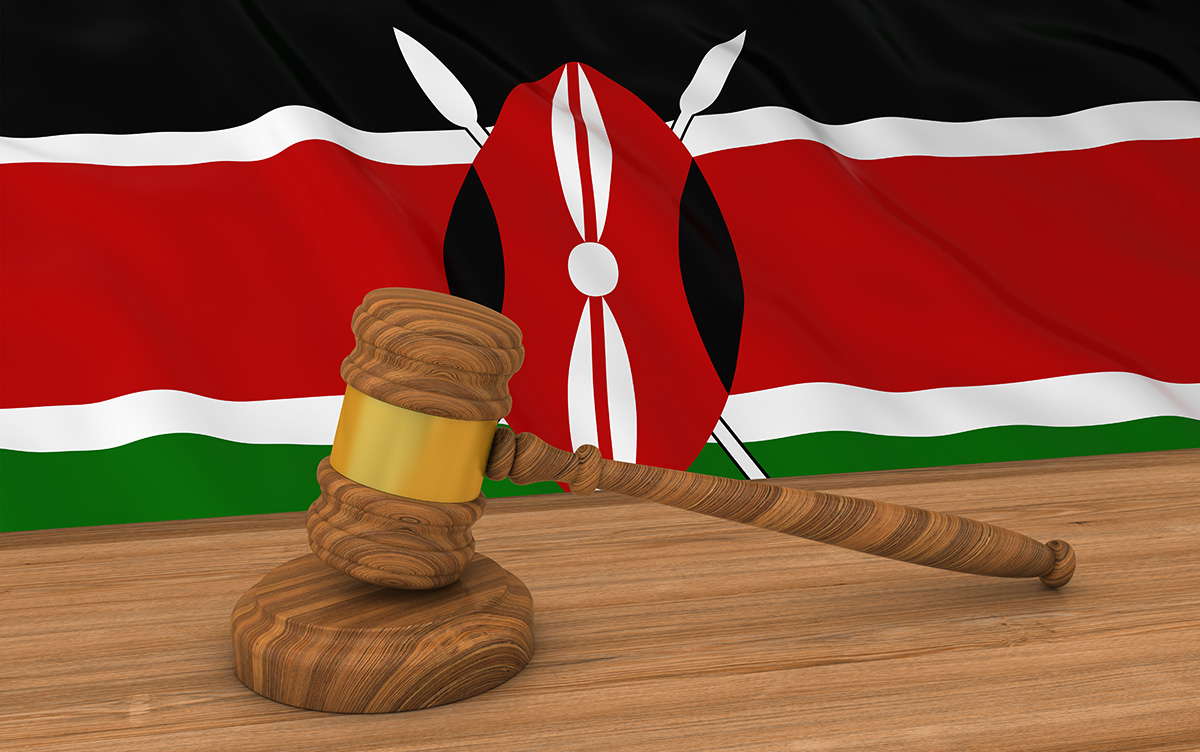
The queer community in Kenya can breathe a sigh of relief after a Mombasa court on Monday ruled clerics, politicians, and anti-LGBTQ groups cannot hold homophobic protests or engage in incitement.
The Mombasa High Court’s ruling, however, is temporary until July 24 when the court in Kenya’s second-largest city determines a petition on the issue.
Two petitioners — Mr. JM and the Center for Minority Rights and Strategic Litigation — last October sued Police Inspector General Japhet Koome for allowing religious leaders and lobby groups to hold homophobic protests whenever a court rules in favor of the LGBTQ community.
The petitioners’ effort to demand a ban on anti-LGBTQ protests in Kenya was in response to a series of homophobic demonstrations, particularly in Mombasa, after the Supreme Court last September affirmed an earlier decision that allowed the National Gay and Lesbian Rights Commission to register as an NGO.
Mombasa High Court Judge Olga Sewe in her Monday ruling also directed the petitioners and the respondents, who include Koome, two anti-LGBTQ activists and a national lobby group dubbed the “Anti-LGBTQ Movement” that organized protests, to file their witness lists and counter statements within 14 days of the July hearing.
“Pending the hearing and determination of this petition, this Honorable Court (does) hereby issue a conservatory order restraining the 2nd and 5th Respondents from calling on or inciting members of the public to carry out extra-judicial killing, lynching, punishing, stoning, forcible conversion, or any other means of harming LGBTQ+ identifying persons and their homes,” Sewe stated.
She also stopped the “Anti-LGBTQ movement,” Koome and any state agency from any attempted “expulsion from Kenya or any party of Kenya of LGBTQ+ identifying persons or closure of organizations serving LGBTQ+ identifying persons.”
The court’s directives come after the Center for Minority Rights and Strategic Litigation led a protest on April 11 against the “anti-LGBTQ Movement”‘s invasion of Mvita Clinic in Mombasa that “hateful misinformation” reportedly sparked because the facility also serves queer people.
“Mvita Clinic, like all healthcare providers, serves the entire community,” CMRSL stated. “Targeting them for LGBTQ+ inclusion is discriminatory and an attack on the basic right to health. Everyone deserves access to healthcare, and we urge an end to the spread of lies. Let’s promote inclusivity and ensure Mvita Clinic remains a safe space for all.”
CMRSL in response to Osewe’s ruling said it was a “major win for safety and equality in Kenya” because it allows the LGBTQ people to live with “greater peace of mind.”
The Initiative for Equality and Non-Discrimination, an LGBTQ rights group, meanwhile lauded the court’s decision as a reprieve to homophobic attacks on the queer community.
“There is some reprieve given the security incidents we witnessed during the protests on Sept. 15 last year,” INEND Communications Officer Melody Njuki told the Washington Blade.
“We had rescued LGBTQ+ folks in Mombasa, Kilifi, and Lamu, due to security incidents caused by the hatred the anti-LGBTQ movement mongered and the calling of violence towards people associated with the queer group and those identifying as members,” she added.
PEMA Kenya, a Mombasa-based gender and sexual minority organization, also applauded the court’s temporary injunction, describing them as timely in protecting the LGBTQ community against all forms of homophobic attacks.
“We welcome the ruling and we believe it will impact our members who for some time felt robbed of the freedom to express themselves,” PEMA Kenya director Ishmael Baraka told the Blade.
The Nature Network, a rights organization for refugees living in Kenya, also welcomed the Monday ruling which it termed “a positive step showing the courts’ commitment to upholding human rights for all.”
“Anti-LGBTQ Movement” Chair Salim Karama, however, declined to respond to the Blade’s questions about the ruling until determination of the petition’s status. He noted the organization is waiting for their lawyer to speak with them about the decision and the filing of counter statements that Sewe ordered.
As LGBTQ rights groups seek the queer community’s protection in Kenyan courts, parliament, on the other hand in is set to consider a petition that notes what it describes as the proliferation of homosexuality in the country.
National Assembly Speaker Moses Wetang’ula on Feb. 27 referred the petition to the relevant parliamentary committee for inquiry after MP Ali Mohamed, a member of the ruling party and a vocal LGBTQ rights opponent, presented it in the National Assembly, the lower house of the Kenyan parliament, on behalf of a group of more than 70 Kenyans and religious organizations opposed to homosexuality.
Africa
For queer Nigerians, being on gay dating apps is still a risk
Homophobes target users for violence

Gay hookup apps like Grindr, and dating apps like Tinder and Bumble have managed to proliferate queer communities in countries like Nigeria.
Those who seek one night stands find what they want while those looking for love equally find what they seek. These platforms have managed to position themselves as safe spaces for queer people in anti-gay Nigeria. In recent times, however, it is proving to be unsafe, as homophobic people are quickly learning about the apps, and opening accounts that either seek to outrightly threaten queer people, or pretend to be queer, have long chats with gay people, invite them over, and inflict violence on them.
Take the case of Biodun, a queer Nigerian man who joined Grindr to meet up with guys like him.
After Biodun had built a connection and agreed to meet with someone whose display name was “Mamba,” they decided to meet up only for him to be met with violence. Apparently, Mamba ran a catfish account.
“I’ll never forget that day,” Biodun, who asked the Washington Blade not to use his last name because of safety concerns, said. “I still think about it, and sometimes blame myself for being very careless, even though Grindr was supposed to be our safe space.”
Biodun’s experience isn’t peculiar to him.
In Nigeria, draconian laws that criminalize same-sex relationships exist, making queer people turn to the digital realm to explore their identities and seek connections beyond the confines of societal oppression that comes with the physical environment. Gay dating apps such as Grindr, therefore, have emerged as virtual sanctuaries, offering spaces for queer Nigerians to forge friendships, find solidarity, and pursue romantic or sexual relationships. Spaces like this, however, have morphed into a landscape fraught with danger, as homophobic people have weaponized these platforms to perpetuate hate and violence.
“Sometimes, I often wonder how they learned about these platforms,” Daniel, which is not his real name, told the Blade. “You would think that it is just us in the platforms, until you find out that the accounts are rooted in homophobia.”
One time, someone’s bio read, “I’m only here to deal with the gay people. I know all of you, and I will find and kill you. We no want una for here (translates to we do not want you here, in English.)” It was a stark reminder that these spaces are no longer LGBTQ-friendly for Nigerians. In 2014, there was the passage of the Same-Sex Marriage Prohibition Act by former President Goodluck Jonathan, which not only criminalized same-sex unions, but also imposed severe penalties on anyone involved in LGBTQ advocacy or support.
This law catalyzed a surge in discrimination and violence against queer Nigerians; emboldening regular civilians, religious extremists, and even law enforcement agencies to target individuals perceived as deviating from traditional gender and sexual norms. Again, amid this hostile environment, gay dating apps emerged as lifelines for many queer Nigerians, offering avenues for discreet communication, community building, and the pursuit of intimate relationships.
The very anonymity and freedom these apps provided, however, became double-edged swords.
The advent of screenshot and screen-recording capabilities on these apps, for example, reduced the risks of exposure, strengthening the safety and privacy of users. However, this also comes with its own lapses, as queer people using Grindr have often relied on screenshots and screen recordings to confirm the identities of potentials with their friends, before accepting to meet.
“Before the removal of the screenshot option, I usually shared photos of others with my trusted friends,” Biodun shared. “But since that was taken off, there was no way for me to do that.”
Although, according to Grindr’s terms and conditions, the removal came with privacy concerns, as it was to facilitate a safe dating experience.
This erosion of digital safe spaces is depriving queer Nigerians of vital avenues for self-expression and affirmation,and is exacerbating the psychological toll of living in a society that continues to systematically demonize their identities. Moreover, the normalization of homophobic rhetoric and violence in both physical and digital realms has perpetuated a cycle of fear and oppression, and is reinforcing this notion that LGBTQ individuals are inherently unworthy of dignity and respect. Despite these challenges, though, the resilience of queer Nigerians continue to persist, as they defy societal norms and assert their right to love and be loved.

